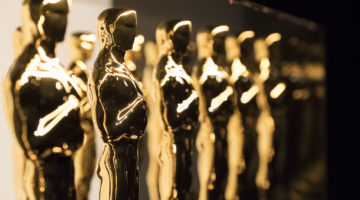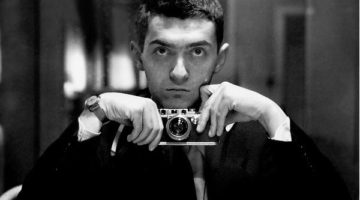TARANTINO ROCKS
By Joey Lovato
Tarantino is one of the most prolific directors of our generation, directing classics like “Pulp Fiction,” “Reservoir Dogs,” and more recently “Django Unchained” and “Inglorious Basterds.” His directing style is unlike anyone else’s. Tarantino is among the most stylistic directors of our time, from Neil Blomkamp’s gritty decrepit futures to Wes Anderson’s whimsical and aggressively symmetrical films, Tarantino has made a name for himself for many movie-goers since the mid-’90s.
Tarantino may not be for everyone, but I think that’s his intention. If nothing else, he should be (and is) respected and appreciated for breaking out of the traditional Marvel movie, formula-based, uninteresting sequel rut that has plagued the movie industry for the past decade. There have been an innumerable number of articles written about this idea already, so I’ll try and stay off my soap box and focus on why Tarantino’s films help break up the monotony of what has become a standard Hollywood formula. His use of elements such as violence, dialogue and music break away from what has made me want to gouge my eyes out when watching most movies these days.
The violence is there for a reason. He uses it in an artistic and visceral way. I’m not a blood and guts kind of guy; I hate the use of unnecessary violence. But the nature of Tarantino films lends itself to violence. It feels real and gritty. When someone gets shot they don’t just fall to the ground making death seem meaningless and desensitizing people to it. People writhe in pain and scream, there is blood and anguish. It’s uncomfortable to watch, which is important. We shouldn’t be comfortable watching violence. It should evoke an emotional response from the audience.
The dialogue can also evoke a lot of emotion from the audience, unlike most uninspired quips from Markie Mark in Transformers XIX. The long monologues may bore some people, but again it breaks away from traditional Hollywood tropes. It’s not predictable. Every word has meaning and builds complex characters. The scene in “Inglorious Basterds” where Christoph Waltz’s character is talking to the farmer really gives you insight to this character’s hatred of Jewish people and his love of merciless brutality.
He also uses music effectively. Each movie has music that suits the tone and action so well it not only
engages the audience but is a leading factor in the flow of the film. Calling upon known tracks such as “Black Skinhead” by Kanye West, and also popularizing now classic songs, such as “You Never Can Tell” by Chuck Berry are just some of the examples of the stellar music choices in his films. The music in these scenes doesn’t just add to the scene but is what makes it iconic. These soundtracks are ones you can go back and listen to time and time again.
Tarantino has broken ground in several ways, from “Jackie Brown” where he featured a strong, black female lead, to “The Hateful 8” where he utilized classic 70mm film and a full intermission as well as a chorus in the live screenings. His story structure can bring unique insight to situations, from “Reservoir Dogs,” the disjointed story of a heist gone wrong without showing the heist itself, to the highly stylized episodic revenge tale of “Kill Bill” that took heavy influence from Japanese films. The man is a modern-day genius who should be respected for his contribution to the film industry.
TARANTINO SUCKS
By Joey Thyne
Quentin Tarantino is the single most overrated director of our generation. Yeah, I said it. He makes movies for edgy 15-year-olds who call themselves cinephiles, follow “Meninist” on twitter and listen to Papa Roach because it’s “real
music.”
Quentin Tarantino has made two good movies: “Reservoir Dogs” and “Pulp Fiction.”
The greatness of those films came from Roger Avary, co-writer of the screenplays, protecting the world from Tarantino’s putrid autonomy. Ever since he started writing his scripts alone, his work has become far more cartoonish and less realized.
“Inglorious Basterds” has Brad Pitt machine gunning Nazis. Hmm, what a complex moral dilemma that is. “Django Unchained” has a scene with Jonah Hill and an early KKK congregation fussing over their hoods (hilarious!) and the movie ends with a goddamn breakdancing horse. This is what is considered cinematic excellence, ladies and gentlemen.
Although they include a range of topics, all his movies are really about one thing: Quentin Tarantino. He is a raging narcissist and an attention whore. Instead of focusing on making actual good movies, he only cares about his name constantly popping up in headlines, whether for using the n-word 110 times in “Django Unchained” or blowing off Channing Tatum’s head after being in “The Hateful Eight” for like ten minutes.
He even acts in his movies. He can’t stand to see his cast steal the spotlight. He just pops up randomly to say some shocking stuff for the sake of being shocking, such as “‘Like a Virgin’ is all about a girl who digs a guy with a big dick” or “Did you notice a sign out in front of my house that said Dead N—r Storage?” His cameos are cringe worthy for a number of a number of reasons but mostly because he can’t act at all.
Tarantino has been praised for his movies being “post-modern” and “meta.” People say that when you watch one of his movies you are always aware that you are watching a movie, as if that’s a good thing. That’s because his creepy shadow is always feverishly hovering over every one of his scenes, never allowing the viewer to forget about him.
I hope this take isn’t too hot for any readers, but he is also a gross misogynist. The message of “The Hateful Eight” is that racial borders can be resolved if everyone can agree that women deserve to be hanged. He can’t write a female character to save his life. In the shallow and scatter-brained “Kill Bill” volumes, Uma Thurman’s lead role rarely gets a chance to speak and doesn’t even get a name.
You can say his over-gluttony of violence is symbolic of this or that, but at the end of the day, it’s just sensationalist gore porn. Although, I bet the overwrought shootout at the end of Django was a big hit around the middle school lunch table when recollected by the one guy whose cool step dad let him stay up late and watch HBO.
Tarantino has said he will only make ten films, “The Hateful Eight” being his eighth. I say eight is good enough. Call it a day before I have to sit through another period piece with Samuel L. Jackson referring to his genitalia for over three hours. But no, the “ten films” gimmick is probably just a ploy for even more critics and fans to beg and plead for him to keep making movies, exponentially inflating his ego, and he will undoubtedly abide and look like a hero. I can’t help but imagine Quentin Tarantino watching his movies in a darkened room, lustfully sucking on his own toes to his pretentious dialogue.
If any readers have suggestions for JOEY vs. JOEY, please contact us.












